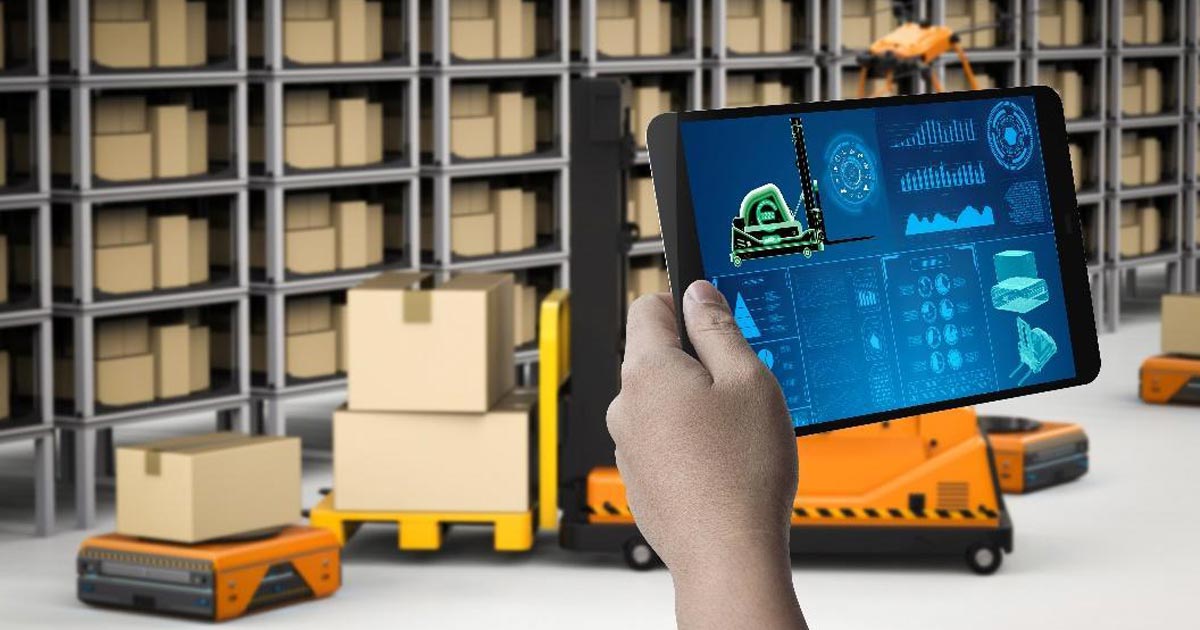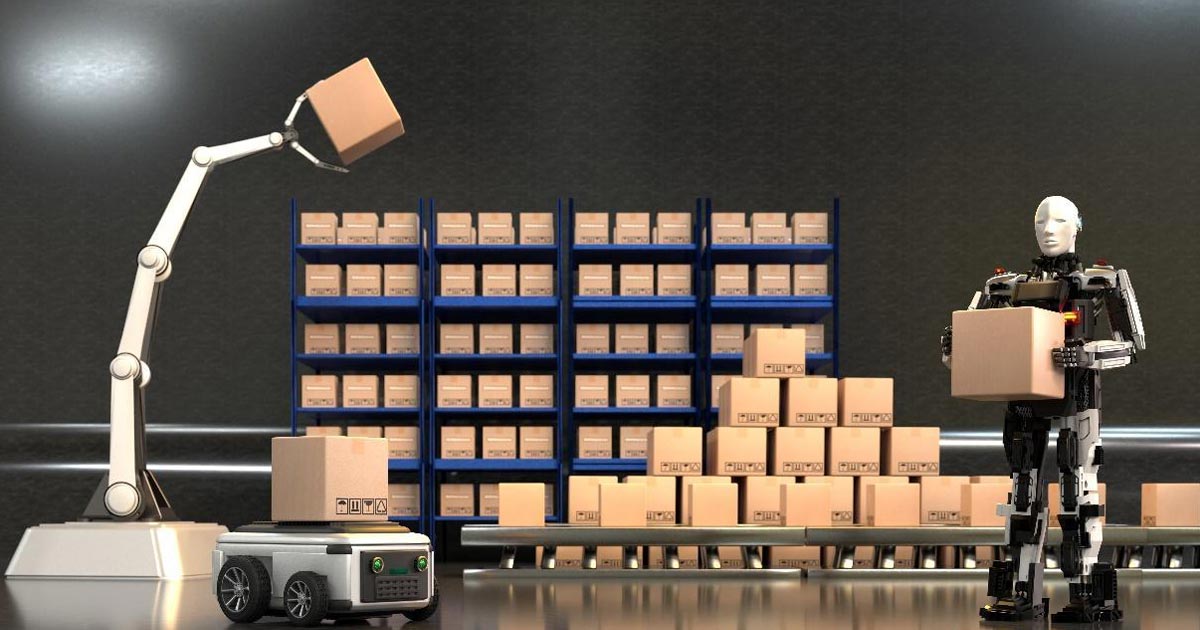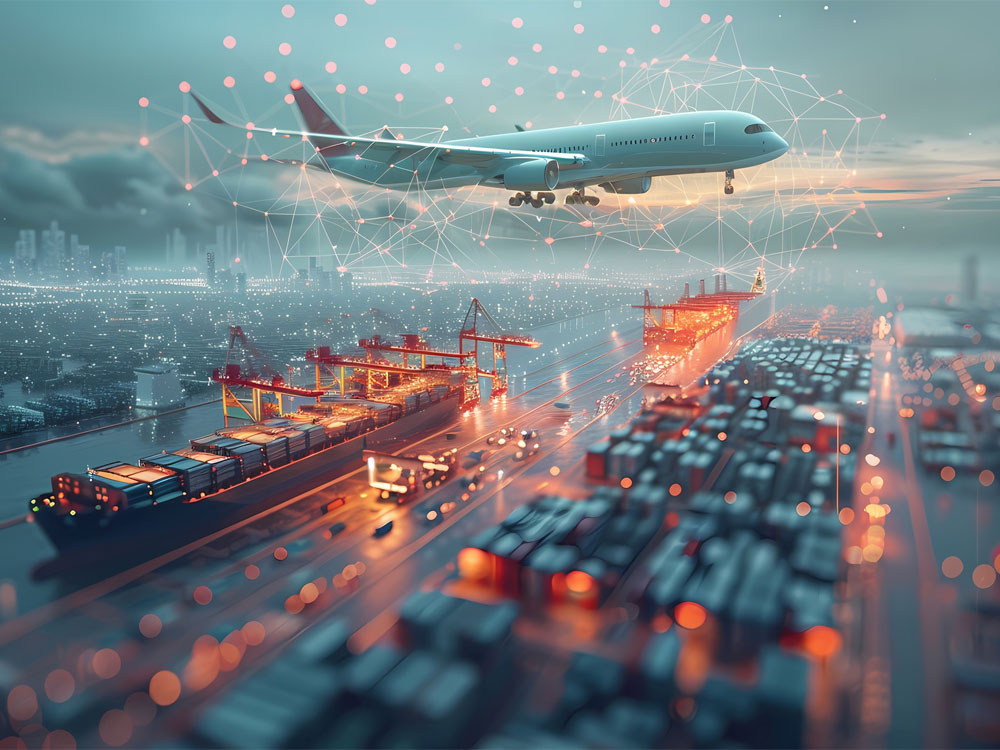The global supply chain is a complex web of intricate networks that acts as a supporting chain in the modern economy. Be it raw material sourcing or final product delivery, there are several interrelated processes involved that are prone to inefficiencies and disruptions.
However, Artificial Intelligence is all set to transform the logistics landscape via its unique levels of automation, optimization, and predictive skills.
Let’s have a closer look at AI's transformative impact on logistics, along with its key applications, benefits, and challenges.
Key Contents:
- Key Applications of AI in Logistics
- Benefits of AI-Driven Logistics
- Challenges and Considerations
- The Future of AI in Logistics
Key Applications of AI in Logistics
AI integration is becoming visible on various aspects of the supply chain, promoting
substantial advancements in:
Demand Forecasting:
- AI algorithms can examine market trends, past data, and external factors, including economic and weather conditions, to accurately predict demand.
- This helps businesses optimize inventory levels, reducing the risk of overstocking and preventing stockouts.
Route Optimization:
- AI-powered systems help you examine the traffic data in real time along with road closures and other active factors to navigate efficient routes for transportation.
- This results in faster delivery times, less fuel consumption, and reduced transportation costs.
Inventory Management:
- AI algorithms play a role in improving inventory levels in different locations, reducing holding costs, and ensuring the product is available on time.
- Techniques such as machine learning can detect patterns in inventory data to forecast possible stockouts and adjust replenishment orders accordingly.

Warehouse Automation:
- AI-driven robots and automated guided vehicles automate tasks like packing, picking, and sorting which has transformed warehouse operations. This results in greater efficiency, less labor costs, and reduced human error.
Predictive Maintenance:
- Sensor data from equipment and vehicles can be analyzed by AI to detect maintenance issues before their occurrence.
- This approach helps reduce downtime, improving overall equipment dependability and minimizing repair costs.
Supply Chain Risk Management:
- Possible disruptions like political instability, natural disasters, and geopolitical events can be recognized by Ai, which assists businesses in developing a contingency plan and reducing risks.
Benefits of AI-Driven Logistics
The logistics service providers have access to multiple benefits that change the way goods move around the world. Let’s have a closer look at some of the key benefits:
Enhanced Operational Efficiency
As per the survey conducted in 2022, 60% of companies around the world think robotic process automation will alter the supply chains by 2025. Logistics companies can utilize this technology for automating repetitive tasks as RPA enables imitation of human actions.
AI-powered robots can assist humans by handling the following tasks:
Warehouse Management: Robots can pick and pack orders, improve storage layouts, and transport goods as per product characteristics and access frequency.
Inventory Management: Robots are equipped with sensors via which AI can monitor inventory levels, detect stock issues, and create automatic purchase orders.
Predictive Maintenance: Ability to constantly track equipment health.
Expense Minimization
By focusing on cost reduction, AI helps companies to attain:
- Less fuel consumption by improving delivery routes based on past data patterns, weather conditions, and real-time road congestion analysis.
- Supplying as per demand by gaining insights into past sales data, market trends, and customer behavior patterns.
- Equipment maintenance by predicting possible supply chain disruptions as per vehicle sensor data analysis.

Improved Eco-Friendliness
Transportation of products results in significant fuel consumption. But with the help of AI-driven data analysis, there can be a reduction in air pollution and greenhouse gas emissions. In short, extracting data from supply chains, consumer habits, and weather patterns enables companies to improve routes and supply processes to decrease the usage of fuel within the logistics and transportation industry.
Elevated Customer Service
Personalization is said to be one of the strongest features to be offered in customer service by AI. NLP and machine learning in particular play a great role in improving communication between customers and businesses by getting hold of contextual data, and generating natural conversations while keeping in mind customer sentiment. Businesses equipped with these technologies can create chatbots that cater to 24/7 customer queries with relevant information.
Moreover, AI alters customer service for logistics in particular with:
- Automated notifications related to potential disruptions or delays.
- Real-time tracking with accurate ETA to keep customers updated.
- Predictive issue resolution based on data about shipments, customers, and delays.
Click here to learn more about how AI integration is enhancing overall customer experience in logistics:
Optimized Labor Schedules
AI isn’t displacing human workers in the logistics industry. It is only encouraging them to be productive. As per McKinsey reports, AI has improved the productivity of field workers from 20% to 30%, and of schedulers from 10% to 20%. With the help of smart scheduling effective and fair labor planning can be promoted via AI systems, and logistics businesses are able to maintain a consistent approach to cater productivity of personnel.
Challenges and Considerations
Although the potential of AI is immense, it comes with several challenges that need to be taken care of:
Data Quality and Availability: The efficacy of AI is heavily dependent on the availability and quality of data. It is critical to ensure completeness, accuracy, and consistency of data for successful AI implementation.
Integration and Implementation: Integration of AI-powered tools into your existing supply chain can be a hassle, which may require a huge investment in technology and related expertise.
Data Security and Privacy: Dealing with sensitive information such as customer data and shipment details demands strong security measures for prevention against data breaches and cyber threats.
Ethical Considerations: AI in logistics has often raised ethical concerns like job displacement. It is also said to have an algorithmic bias.
Skills Gap: A shortage of skilled professionals who are experts in data science and AI can be a hurdle in the utilization or adoption of AI features in the logistics industry.
The Future of AI in Logistics
The future of AI in logistics is promising, due to continuous innovations in deep learning, machine learning, and other AI tools. In coming years we can also witness further integration of AI in areas like:
Autonomous Vehicles: Self-driving drones and trucks will further ease transportation, altering the delivery of goods.
Blockchain Technology: Blockchain technology can improve supply chain traceability, transparency, and security, which will have a positive impact on the reliability and efficiency of logistics operations.
Personalized Logistics: AI may offer a tailored delivery experience, including on-demand delivery, tailored shipping options, and customized delivery windows.
AI is all set to change the logistics landscape, fostering high levels of productivity, efficiency, and sustainability. By addressing the associated challenges with AI, businesses can enjoy a competitive edge, improve customer satisfaction, and stay ahead in a dynamic marketplace.
.png)








